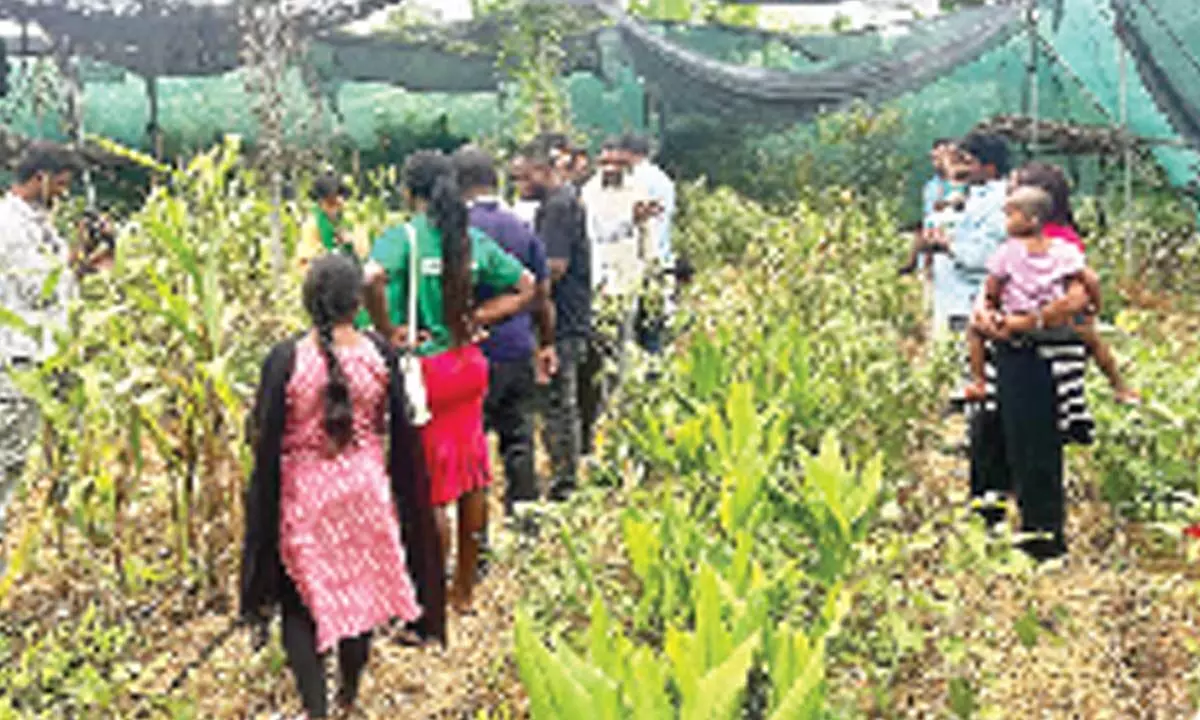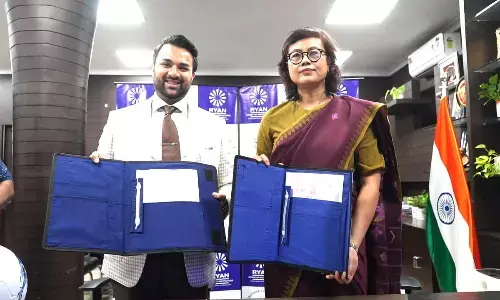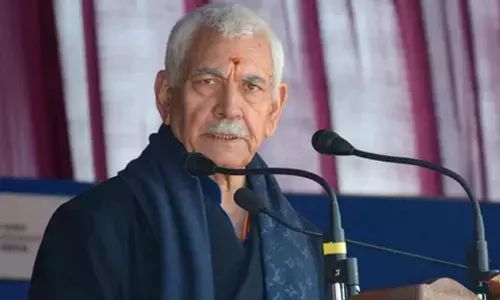Kuppam farmer proves natural farming productive, profitable

- Krishna Murthy’s one acre farm in Seegalapalli village is a model of biodiversity and sustainabil-ity
- He cultivates over 20 biodiversity crops, 16 types of vegetables, black and brown rice varie-ties
Tirupati: Andhra Pradesh is leading a significant shift towards sus-tainable agriculture with its Community Managed Natural Farming (APCNF) programme, driven by the State gov-ernment through the Rythu Sadhikara Samstha.
This initiative empowers farmers to adopt eco-friendly practices, restoring soil health, reducing environmental damage and producing nutritious, chemical-free crops.
While there are many farmers who embrace this initiative, one farmer G Krishnamurthy from Seegalapalli village of Kuppam mandal in Chittoor district, exemplifies how natu-ral farming can be both productive and profitable. He has been committed to natural farming for the past eight years, achieving impressive results.
Following APCNF guidelines, he avoids soil tillage and chemical fertilisers, focusing instead on integrated farming that combines livestock and diverse crops. His expertise, further enhanced by the farmer scientist course, allows him to innovate and tackle pest challenges with natural solutions.
A key factor in his success is the use of bio-stimulants such as Ghana Jeevamrutham and Drava Jeevamrutham. These organic mixtures have replaced costly chemical in-puts, demonstrating that natural farming is not only sus-tainable but also cost-effective. To benefit his community, he and his family run a bio-inputs shop, supplying villagers with natural farming resources and chemical-free produce. His fresh vegetables and leafy greens are highly sought after in the local market, with surplus produce sold in Kuppam.
Krishnamurthy’s one-acre farm is a model of biodiversity and sustainability. He cultivates a mix of moringa, banana, papaya, curry leaves and castor, alongside 20 other biodi-versity crops. Additionally, he grows 16 types of vegeta-bles, including onions, carrots, radishes, sweet potatoes and beans under a shade net on 20 cents of land. Special-ty grains like black rice and brown rice further add to the nutritional diversity of his produce.
His innovative approach extends beyond crops. Krishna-murthy runs a Non-Pesticide Management (NPM) shop, of-fering natural pest-control solutions for farmers who may not be able to prepare these inputs themselves. This ven-ture, which was started with an investment of Rs 25,000, now provides a steady monthly income of Rs 5,000.
In addition, he raises indigenous chicken breeds, earning an annual income of Rs 45,000 from poultry farming. His horticultural crops, launched with an investment of Rs 30,000, generate Rs 80,000 annually. Another innovative venture, his ‘Any-Time Money’ (ATM) model, started with Rs 8,000 yields a seasonal income of Rs 45,000.
Through these diverse farming models, livestock man-agement, and entrepreneurial initiatives, Krishnamurthy proves that natural farming can be economically viable while preserving the environment. His success inspires other farmers to adopt sustainable practices, fostering a wave of eco-friendly agriculture in the region. Looking ahead, he plans to establish a one-acre fruit orchard and continue mentoring fellow farmers.








